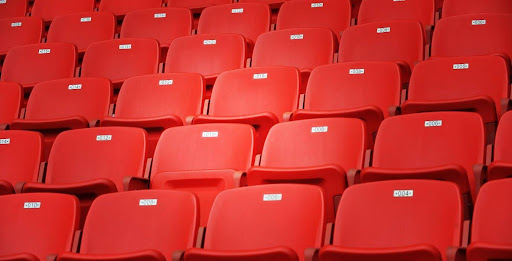Where can Manchester United improve under Ruben Amorim?

It’s safe to say that the first few months of the Ruben Amorim era have been challenging at Manchester United. The Portuguese tactician’s baptism of fire has been unforgiving—a tough start with the Red Devils languishing in 13th position in the Premier League — a far cry from the lofty heights once considered birthright at a club where football betting odds would regularly favour the Old Trafford faithful. And for a lot of the season, they were amongst the football teams with risk of relegation.
Yet beneath the disappointing league position and inconsistent results, flickers of promise emerge, hinting at the vision Amorim carries for this slumbering giant. The win away at Leicester City showed there is still a real gulf between the bottom three and the might of Man United, yet there is plenty to be done to provide the consistency that the Stretford End craves.
“Everybody here in the club – wants me to stay here for many years, and I want to be here for many years, but we need to win games. So that’s why I know that in this kind of club with the exposure that we have, with the past that we have – and that is also important because one thing is to have a bad results, a bad season, another thing is to been suffering for a while.
“I know that we need to improve things in the hurry pace. Of course we have a plan that is a good thing. I know how I want to play, and I feel the support from the board. So the plan is there, but we need to win. And that is a good thing. And also excited thing to live.”
Amorim revealed a lot in his recent Sky interview, offering a window into the unwavering belief system guiding him through these turbulent early months. This philosophical anchor may well prove the foundation upon which Manchester United’s renaissance is built.
A strong relationship between a manager and club ownership can shape a team’s future, and Amorim seems to have struck gold.
This support runs deep, with key figures like Jim Ratcliffe, Omar Berrada, Sir Dave Brailsford, and Jason Wilcox backing him both privately and publicly. Their trust gives Amorim the stability to make real changes without fear of quick dismissals. Ratcliffe’s endorsement of a new 100,000-seater stadium—and the suggestion that Amorim could still be in charge when it opens—only strengthens his position.
But the most valuably currency indicating success in football is victory and silverware – both looking sparser with each passing year – so things must be addressed with the playing staff on the pitch as well as the club’s operations.
The summer transfer window looms as a defining moment in Amorim’s Manchester United project. With Christian Eriksen expected to depart alongside Jadon Sancho, significant reshaping of the squad appears inevitable and necessary.
Several players within the current setup simply aren’t meeting the standards required at Manchester United. This reality—while uncomfortable—must inform decisions moving forward. Amorim’s willingness to confront these hard truths publicly signals his determination to elevate standards rather than accommodate mediocrity.
The club’s recruitment strategy appears to be coalescing around several high-profile targets who could reshape United’s attacking options. Eintracht Frankfurt’s Hugo Ekitike and RB Leipzig’s Benjamin Sesko have emerged as primary targets, while Viktor Gyokeres—who flourished under Amorim at Sporting Lisbon—represents an intriguing possibility for a reunion. Napoli’s Victor Osimhen remains high on the wish list, though securing his signature would require both significant financial investment and likely Champions League football.
The qualification pathway makes Europa League success increasingly vital. With the FA Cup journey now concluded and top-four Premier League placement almost impossible, lifting the Europa League trophy would provide both silverware and the Champions League qualification essential for attracting elite talent.
The Leicester victory, perhaps due to it falling just before the international break, provided a tantalising preview of potential—a fleeting glimpse of the Manchester United that could emerge under Amorim’s stewardship. Building on such moments demands both strategic patience and relentless drive.
The stakes could scarcely be higher, but in Amorim’s authentic approach and unwavering vision lies genuine hope that Manchester United’s next chapter might finally match the glory of its illustrious past.
